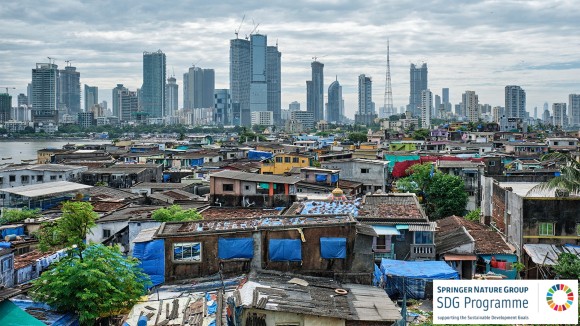Collection
Neoliberalism and global poverty alleviation
- Submission status
- Open
- Submission deadline
The promise of neoliberalism was to liberate individuals from state regulation to better enable individuals to succeed in market competition. Firms’ profits would increase, and wealth would trickle down as firms competed for workers. On a global scale, marketisation was promoted as a means for poorer countries to increase their wealth and opportunities. The reality of four decades of neoliberal political economy though has seen a significant intensification of national and international disparities in wealth distribution.
The devastating effects of exacerbating poverty (e.g., elevated rates of heart disease, diabetes, hypertension, cancer, infant mortality, mental illness, social and political exclusion) have been raising concerns amongst academic researchers across a range of disciplinary fields (political science, sociology, anthropology, psychology, economy, and philosophy), political practitioners, journalists, policymakers, and interested citizens. Also, different policies have been proposed, and studies undertaken to tackle with it.
However, the numerous social, political, economic, and cultural threats, among others, may undermine the success of these measures.
Therefore, this Collection aims:
(a) to explain the linkage between neoliberal political economy and polarising wealth distribution
(b) to identify poverty alleviation threats at local, national, and global levels.
(c) to provide new knowledge and appreciation of different poverty policies in the face of these threats across different continents at different institutional levels.
(d) to establish an open global dialogue between researchers and policymakers on poverty policies alleviation. This dialogue is increasingly necessary in a world where states, international relations, social media, and climate change demand and/or fuel more substantial interconnections between institutions, the public(s), and citizens of different countries and nations.
We welcome research on a range of themes relating to the Collection including, but not limited to:
- Political threats: neoliberalism, populism, nationalism, xenophobia, racism.
- Environmental threats: deforestation, biodiversity decreasing, climate change.
- Geo-strategical threats: Ukraine-Russia war.
- Technological threats: robotization.
- Threatened groups: migrants, rural citizens, religious minorities, children, women, black citizens.
- Threatened regions across continents: rural, urban, maritime.
- Policies for alleviation poverty: education; gender equality; healthcare services, environmental protection.
- Political local, national, international, and global actors.
- The role of civil societies.
- Intergenerational, climate, and social justice.
The Collection welcomes submissions from researchers across the globe; from Asia, Africa, Latin America, the United States of America, Australia/New Zealand, and Europe. This issue is also open to policy-proximate research and interdisciplinary perspectives that draw on political science, political theory, political philosophy, international relations, sociology, anthropology, psychology, economics.
Despite the literature on neoliberalism and poverty alleviation, our global, interdisciplinary, and policy-proximate research approach is a novelty.
This Collection supports and amplifies research related to Sustainable Development Goal 1 - No Poverty.

Editors
-
Justin Cruickshank, PhD
University of Birmingham, UK
-
Regina Maria da Cruz Queiroz, PhD
Lusófona University, Lisbon University Centre and IFILNOVA, New University of Lisbon, Portugal
